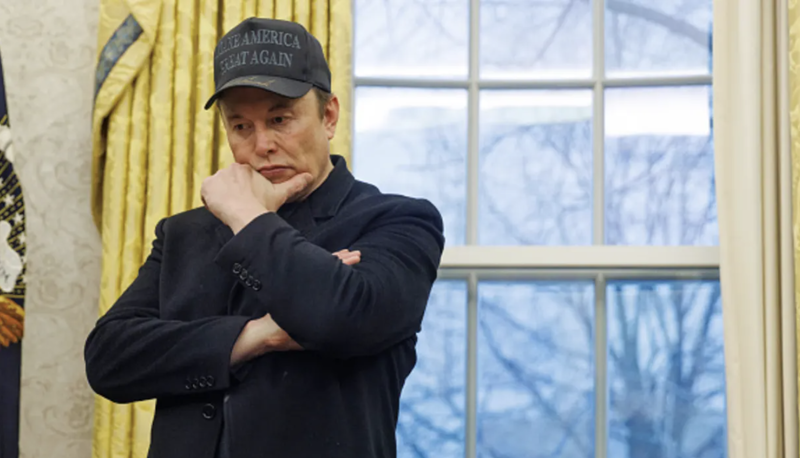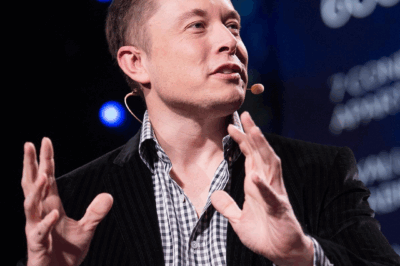On February 27, US media reported that billionaire Elon Musk – who was appointed by President Donald Trump to help cut federal spending, proposed raising salaries for congressmen and senior government officials to prevent corruption.

In a statement posted on the social media platform X, Mr. Musk emphasized the need to increase the salaries of congressmen and senior government officials to prevent and combat corruption – which can cost people 1,000 times more.
Congressmen from both the Republican and Democratic parties are usually quite wary of strong salary increase proposals, but admit that a competitive salary is the best solution for all officials to focus on performing their duties and tasks well.
According to the US media, the average salary of congressmen is about $ 174,000 / year. Although this salary has not changed in 15 years, it is still high compared to the income of average households.
Billionaire Elon Musk is nominally one of President Donal Trump’s advisors. However, Mr. Trump has sometimes referred to Mr. Musk as someone who has been “empowered” to lead the Department of Government Efficiency (DOGE) and implement plans to cut spending and shrink the federal bureaucracy. In a speech in Miami last week, Mr. Trump said he “signed an executive order to create DOGE and put someone named Elon Musk in charge.” However, in court filings, the White House said Mr. Musk is not a member of DOGE nor is he in charge of DOGE. A White House official said Ms. Amy Gleason, a former official of the United States Digital Service (USDS), is the person in charge of DOGE, but did not say when she was officially appointed.
Billionaire Musk attended the first Cabinet meeting of the Trump administration on February 26 and spoke about DOGE’s proposals. Here, Mr. Musk affirmed that the United States needs to act or it will go bankrupt.
According to US media, more than 30% of DOGE employees have quit in protest of Mr. Musk sending an email to more than 2 million federal employees, asking them to report their work. Although cabinet members expressed disappointment, President Trump affirmed that his team is “very happy” with the work that billionaire Musk is promoting.
Tesla shares “evaporated” more than 8%, Elon Musk “lost” more than 22 billion USD in assets in 1 day

Tesla shares fell more than 8% in trading on February 25, erasing almost all of the gains since President Donald Trump, who has a close relationship with the electric carmaker’s CEO Elon Musk, was re-elected in early November.
The 8.4% drop pushed Tesla’s market capitalization below the $1 trillion mark. Tesla shares closed at $302.80 a share, giving it a market capitalization of nearly $949 billion – its lowest level since November 7, two days after Trump won the 2024 US presidential election.
Tesla shares have fallen 25% this year, while the Nasdaq – the US stock index of which Tesla is a member – has fallen only 1.5%. Compared to the record set on December 16, Tesla shares are now down more than 35%.
Since Tesla’s stock peaked, Musk has lost about $130 billion in net worth. On February 25 alone, his net worth fell $22.2 billion, marking the fourth-biggest one-day drop ever. Still, Musk is worth about $358 billion and is the richest person in the world, according to the Bloomberg Billionaires Index, the 500 richest people on the planet.
Compared to the time before Trump won his second term as president, Musk’s fortune is now about $100 billion higher. Tesla’s stock has lost most of its post-election gains, but Musk’s fortune has still increased because, in addition to nearly half of Tesla’s shares, he also owns shares in other companies that are not listed on the stock exchange, such as xAI, SpaceX, X, Neuralink, and The Boring Company.
Tesla shares have been under heavy selling pressure from investors as Wall Street dumps tech stocks in recent sessions amid concerns about a worsening US economic outlook due to escalating trade tensions.
Trump’s key policies, including cuts to the federal budget and tariffs on imported goods, are putting downward pressure on the US stock market – contrary to his campaign promise to create a booming market. The S&P 500 has fallen 3.1% over the past four trading days, while the Magnificent 7 Index – an index measuring the prices of seven large-cap technology companies – fell into correction mode on February 25.
The selling pressure on Tesla shares has been further exacerbated by the fact that Musk – who heads the Department of Government Efficiency (DOGE) in the Trump 2.0 administration – has been embroiled in controversy over his efforts to lay off a large number of federal employees to cut costs.
In addition, Tesla shares on February 25 also faced downward pressure from a Reuters article saying that the latest upgrade to Tesla’s partial self-driving system disappointed users. Many users revealed to Reuters that Tesla’s self-driving feature on Chinese streets did not reach the level that Mr. Musk promised about self-driving technology.
The information increased concerns of Tesla shareholders. Part of that concern stems from the company’s recent business results, and part is related to Mr. Musk – who is spending too much time on work at DOGE.
Along with his team, Mr. Musk has unprecedented access to federal computer systems and taxpayer data. Mr. Trump also gave Mr. Musk the right to fire a series of civil servants in government agencies, including those with the authority to supervise Mr. Musk’s companies like Tesla.
Musk’s alleged extreme actions in DOGE have led to protests against him, including at Tesla dealerships and service centers.
Meanwhile, Tesla’s fourth-quarter 2024 results delivered both revenue and profit that fell short of analysts’ forecasts, with auto sales down 8% year-over-year and operating profit down 23%. The company said that the decline in average selling prices of its older product lines, including the Model 3, Model Y, Model S and Model X, was the main reason behind the decline in revenue and profit.
According to the California New Automobile Dealers Association (CNADA), Tesla’s vehicle sales in the state fell 11.6% in the fourth quarter of 2024. California is Tesla’s largest market in the US.
News
This is not a Travis Scott concert!! Cody Johnson had to stop his recent concert after a fight broke out in the crowd.
Cody Johnson halted his recent concert after a scuffle happened in the crowd when he performed a patriotic song. The…
Not Shania Twain or Garth Brooks; this country music legend with a net worth of over half a billion dollars comfortably sits at the top of the wealth rankings.
Not Shania Twain or Garth Brooks: This is country music’s richest singer — and her jaw-dropping net worth This ‘Working…
Trace Cyrus, the son of Billy Ray Cyrus, is losing control? This time, it’s Jason Aldean’s turn to be criticized by him.
Country music icon’s son tears into Jason Aldean: ‘Listen to how stupid this is’ Jason Aldean performs a tribute to…
“Now Elon Musk must sell all his shares to possibly save Tesla.”
Former loyal employee warns: Elon Musk must step down and sell all shares to save Tesla! “For Tesla, if we…
Riley Green: The tiny singer “steals all the attention”!
Watch: Ella Langley’s adorable mini-me performer ‘steals the show’ from her and Riley Green Ella Langley and Riley Green invited an adorable young…
”Harry Styles coming to Anfield at the behest of Dua Lipa? This is no joke.”
Dua Lipa Anfield guest rumours as fans link Harry Styles and Raye to Liverpool show The One Kiss singer’s surprise…
End of content
No more pages to load












